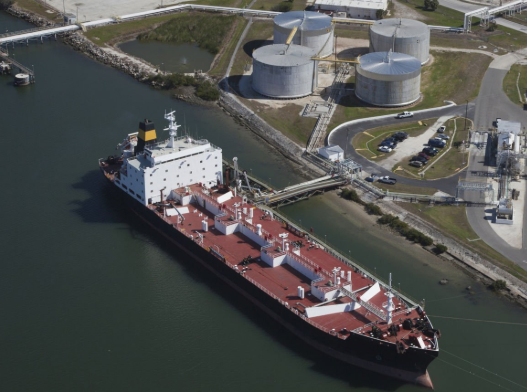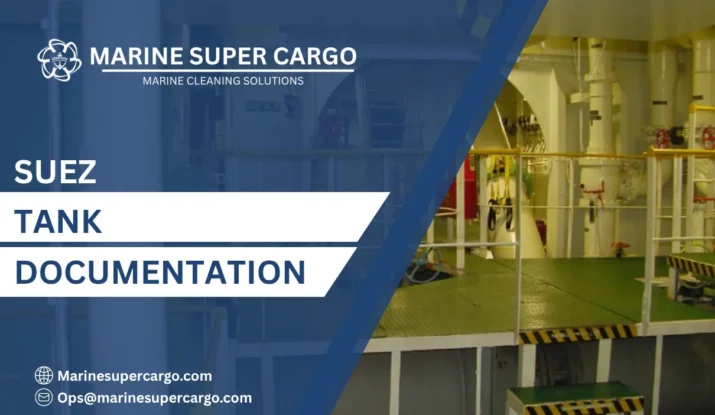Critical Documentation for Suez Canal Compliance
Proper preparation of Suez tank documentation determines whether vessels experience smooth canal transit or face costly delays and penalties. The Suez Canal Authority maintains strict oversight of tank cleaning records to prevent environmental contamination and ensure maritime safety. At Marine Super Cargo, we specialize in helping vessel operators compile comprehensive documentation packages that satisfy all regulatory requirements.
Suez tank documentation encompasses multiple record books, certificates, and procedural logs that collectively demonstrate vessel compliance with international conventions. Port State Control officers board vessels during canal transit to verify these documents, examining entries for accuracy, completeness, and consistency with vessel operations.
The Oil Record Book – Foundation of Suez Tank Documentation
The Oil Record Book represents the most critical component of Suez tank documentation for tankers and cargo vessels. MARPOL Annex I mandates this record, requiring detailed entries for every tank cleaning operation, oil transfer, and discharge activity performed aboard the vessel.
Suez tank documentation inspections scrutinize Oil Record Book entries for temporal consistency and operational logic. Inspectors verify that recorded tank washing dates align with cargo discharge schedules and that waste quantities correspond reasonably to tank volumes cleaned. Discrepancies raise suspicion of illegal discharges or falsified records.
Each Oil Record Book entry must include specific information: operation date and time, operational code number, tank identification, quantity of oil or water transferred, and disposal method employed. Signatures from the officer supervising operations authenticate each entry, establishing accountability for Suez tank documentation accuracy.


Cargo Record Book Requirements
Chemical tankers and gas carriers must maintain Cargo Record Books as mandated by MARPOL Annex II. This Suez tank documentation record details every cargo-related operation involving noxious liquid substances, including loading, discharge, tank cleaning, and residue disposal activities.
Suez tank documentation for chemical tankers requires particularly meticulous Cargo Record Book maintenance. Entries must specify cargo names, UN numbers, pollution categories, and exact quantities handled during each operation. Tank cleaning entries identify cleaning agents used, washing procedures employed, and resulting residue disposal methods.
Marine Super Cargo assists vessel operators in establishing robust Cargo Record Book procedures that withstand regulatory scrutiny. Our expertise ensures entries contain all required information formatted according to IMO guidelines, preventing deficiencies during Suez tank documentation inspections.
Pre-washing certificates and ventilation records supplement Cargo Record Books for certain cargo transitions. These supporting documents demonstrate compliance with specialized cleaning protocols required before loading sensitive cargoes or entering shipyard facilities for repairs.
Tank Cleaning Certificates and Survey Reports
Suez tank documentation packages must include all current tank cleanliness certificates issued by approved surveyors. These certificates verify that cargo tanks meet specified cleanliness standards suitable for intended subsequent cargoes. Certificates typically specify cleanliness grade achieved—cargo free, water white, or hospital clean.
Survey reports accompanying cleanliness certificates provide detailed inspection findings. These reports document tank conditions observed during surveys, including residue presence, structural conditions, and coating status. Inspectors may request these reports during Suez tank documentation reviews to verify cleaning effectiveness.
Slop tank management records form another critical element of Suez tank documentation. These records track oily residue accumulation, processing through oily water separators, and eventual disposal to shore reception facilities. Consistent record-keeping demonstrates proper waste management throughout vessel operations.
Tank inspection reports documenting structural integrity and coating conditions support overall Suez tank documentation compliance. While not directly related to cleaning operations, these reports provide context for understanding tank maintenance history and potential contamination sources.
Supporting Documentation and Operational Logs
Deck logs and engine room logs provide corroborating evidence supporting entries in specialized record books. Suez tank documentation inspectors cross-reference these logs with Oil Record Books and Cargo Record Books to verify operational consistency. Weather conditions, sea state, vessel speed, and position information in deck logs must align logically with recorded tank operations.
For comprehensive guidance on documentation best practices, review our resources on tank cleaning compliance procedures and maritime waste management protocols.
Digital Documentation Systems and Electronic Records
Modern vessels increasingly utilize electronic record-keeping systems for Suez tank documentation management. The IMO approves various digital platforms that meet regulatory requirements while offering enhanced accessibility and data security. However, vessels must maintain backup systems ensuring record availability during system failures.
Electronic Oil Record Books require approval from flag state administrations before implementation. These systems must prevent unauthorized alterations while maintaining complete audit trails documenting all entries and modifications. Proper implementation streamlines Suez tank documentation presentation during inspections.
Common Documentation Deficiencies to Avoid
Missing signatures represent the most frequent Suez tank documentation deficiency discovered during inspections. Every record book entry requires authentication by the responsible officer, with additional master signature for specific operations. Unsigned entries invite inspector skepticism regarding record authenticity.
Marine Super Cargo provides comprehensive training programs addressing proper record-keeping procedures, helping crews maintain impeccable documentation standards that ensure smooth Suez Canal transits.
Frequently Asked Questions
Q1: How far back do Suez Canal inspectors typically review tank cleaning records?
Inspectors commonly examine records covering the previous 12 months of operations, though they may request older records if specific concerns arise during inspection. Vessels must retain record books for three years.
Q2: Are photocopied certificates acceptable for Suez tank documentation?
Original certificates are always preferred, but certified true copies are generally acceptable if properly authenticated. Digital certificates from approved electronic systems meet requirements with appropriate verification.
Q3: What happens if a vessel cannot produce required tank cleaning documentation?
Missing documentation results in vessel detention until deficiencies are resolved. Masters may face personal penalties, and the vessel operator receives formal deficiency reports affecting Port State Control targeting profiles.
Q4: Can records be maintained in languages other than English for Suez transit?
Records must be in English, French, or Spanish per MARPOL requirements. If maintained in another language, certified English translations must accompany original documents during Suez inspections.
Q5: How should corrections be made in paper Oil Record Books?
Corrections require single-line strikethrough of incorrect entries with correct information written adjacent, dated, and signed by the officer making the correction. Erasures or use of correction fluid invalidate records.
For expert assistance with Suez tank documentation preparation and comprehensive tank cleaning services, contact Marine Super Cargo today.


